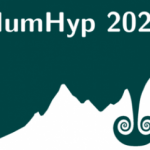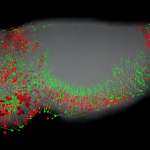Location: University of Trento, Italy
Dates: Monday 6th February to Friday 17th February 2017
The course
This two-week, intensive short course is focused on mathematical modelling and simulation, and is intended for PhD students, post-doctoral research fellows, researchers in industry, academics and scientists in managerial positions. The contents embrace various disciplines, including applied mathematics, numerical analysis of differential equations, physics, fluid mechanics, engineering, biology and medicine. The course has two distinct but complementary parts: theory of hyperbolic equations and their numerical discretization, and applications that include compressible fluid dynamics, free-surface shallow flows and blood flow in arteries and veins. The theory will be supplemented with practical activities including solution of problems by hand and computer-based exercises using ready-made sample programs. Written lecture notes and sample computer programs will be provided.
Contents
The contents of the course will include: Linear hyperbolic equations: theory and exact solution of the Riemann problem. Non-linear scalar equations and shock formation. Non-linear hyperbolic systems. The shallow water equations. The Euler equations for compressible materials and equations of state. The cardiovascular and other body-fluid systems. One-dimensional models for blood flow and tube laws for arteries and veins. Compartmental models for blood flow. Basics on numerical methods for hyperbolic equations. The finite volume and discontinuous Galerkin finite element frameworks. Godunov-type methods. Source terms, the stiff and non-stiff cases. Parabolic equations formulated as hyperbolic equations with stiff source terms. Well-balanced methods. ADER high-order methods in space and time. Flow in networks and methods for junctions.
Seminar-like presentations:
(a) Riemann solvers and numerical fluxes: a review;
(b) The role of high-order methods in computational science and
(c) Neurodegenerative diseases and their link to body-fluid dynamics.
Fees
Students: € 1200
Post-doctoral fellows: € 1500
Others: € 2000.
The fees cover lectures; laboratory exercises, printed lecture notes; demonstration programs in MATLAB; a full version of the FORTRAN
library NUMERICA; coffee breaks and one social dinner during the second week.
About Trento and the Dolomites
The historical city of Trento is situated in the autonomous Italian region of Trentino – Alto-Adige, close to the world-famous mountains, The Dolomites. Trento is very easy to reach by car or train from Austria (150 km south of Innsbruck) and from Verona (90 km north of Verona). The nearest and most convenient airport is Verona Airport, 15 minutes from the Verona train station. The region around Trento is of extraordinary beauty, with its unique mountains and lakes that offer participants many exciting outdoor activities like skiing, hiking or climbing.
Course information
Prof. Dr. E. F. Toro (eleuterio.toro@unitn.it) or Christian Contarino (christian.contarino@unitn.it)
This course is part of 2017 Trento Winter School on Numerical Methods
Further information from link below:
http://webmagazine.unitn.it/en/evento/dicam/10620/2017-trento-winter-school-on-numericalmethods


